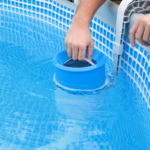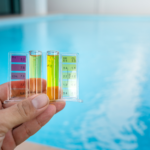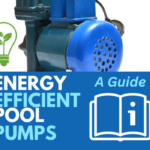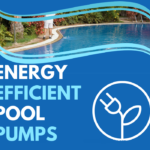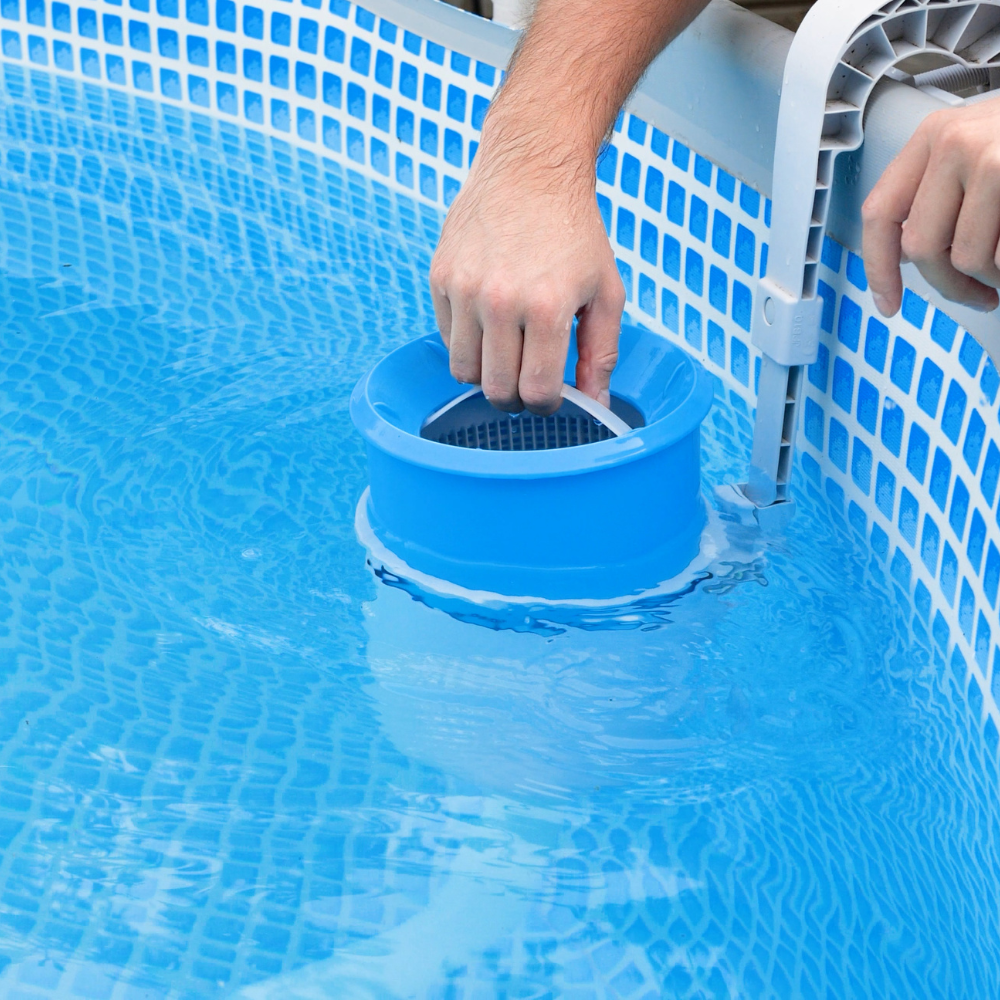
Understanding Pool Pump and Motor Repair
The pool pump and motor are integral parts of your swimming pool system, tirelessly working to maintain pristine water conditions. The pump’s role is to circulate water through the filtration system, while the motor provides the necessary power for the pump to function. As with any mechanical device, wear and tear over time can lead to operational issues. Recognizing these problems and knowing how to address them is key to preserving your pool’s functionality and lifespan. This knowledge also becomes pivotal when deciding between a do-it-yourself repair or hiring a professional. In the following sections, we will delve into each approach, weighing their advantages, disadvantages, and financial implications.
Significance of Pool Pump and Motor
Think of the pool pump and motor as the lifeblood of your swimming pool, performing the vital job of maintaining clean, clear, and safe water for your enjoyment.
The pool pump operates by circulating the pool’s water. It draws water through a strainer basket, pushes it into the filter, and then the water is heated and chemically treated. The pump also generates sufficient water flow for effective backwashing, skimming, and vacuum cleaning.
The motor, on the other hand, is the driving force behind this cycle. It powers the pump, enabling it to perform its essential water circulation duty.
In unison, the pump and motor ensure your pool water is thoroughly filtered and sanitized, providing a healthy and enjoyable swimming environment. Additionally, a well-maintained pool pump and motor can significantly prolong your pool’s lifespan, making it a wise long-term investment.
A malfunctioning pump or motor can result in inadequate water circulation, unfiltered debris, and chemical imbalances, transforming your pool into a potential haven for bacteria and algae. More severe issues, such as flooding or expensive equipment damage, can also arise from a faulty pump or motor. Hence, grasping their importance is crucial for effective pool maintenance and repair.
Identifying Common Pool Pump and Motor Issues
Maintaining the health of your pool involves staying vigilant for signs of potential pump and motor issues. Early detection can lead to prompt repairs, mitigating the risk of severe malfunctions and expensive replacements.
Noisy Operations: Unusual noise from your pump or motor could be a red flag. This could indicate air in the pump system or failing bearings in the motor.
Leaking Pump: If left unattended, this could lead to more significant problems.
Overheating: An excessively hot motor or one that shuts off on its own could be overheating.
Poor Water Circulation: Unclear pool water or ineffective filtration of debris could suggest an underperforming pump or motor.
Motor Won’t Start: A motor that struggles to start or fails to start could indicate electrical issues or component failure.
Increased Energy Bills: A sudden spike in energy costs could be a sign that your pool pump or motor is operating inefficiently and requires repair or replacement.
Comparing DIY and Professional Pool Pump and Motor Repair
The decision between a DIY (Do-It-Yourself) approach and hiring a professional for pool pump and motor repair is crucial. Both options have their unique benefits and challenges. In the following sections, we will delve into a detailed comparison of these two alternatives, focusing on their respective advantages and drawbacks. Additionally, we will explore the financial implications of each repair method, offering a thorough comparison to assist you in making a decision that aligns with your specific requirements.
Pros and Cons of DIY Repair
Embarking on a DIY journey to repair your pool pump and motor can be both rewarding and challenging.
Advantages: 1. Economical: The most compelling advantage of DIY repair is the potential to save money. By doing the work yourself, you eliminate labor costs. 2. Flexibility: With the right tools and knowledge at your disposal, you can carry out repairs at your leisure, bypassing the need to arrange a service appointment. 3. Personal Achievement: There’s a unique sense of satisfaction that comes from successfully completing a repair job on your own.
Disadvantages: 1. Time Commitment: DIY repairs can be a significant time sink, especially if you’re a novice. From diagnosing the issue, procuring the correct parts, to executing the repair, the process can be lengthy. 2. Potential for Further Damage: If not done properly, DIY repairs can exacerbate the problem, turning a minor issue into a major one. 3. Safety Concerns: Handling electrical components such as motors can be hazardous if not done safely. 4. No Warranty: Unlike professional services, DIY repairs do not come with a warranty. If the repair fails, you’re left to handle the consequences.
DIY repairs can be a cost-effective solution, but they require a certain degree of technical know-how, risk management, and a substantial time commitment. Your decision should be guided by your comfort level with these factors.
Pros and Cons of Professional Repair
Opting for professional pool repair services to address your pool pump and motor problems also brings its own set of benefits and drawbacks.
Advantages: 1. Professional Expertise: Professionals bring a wealth of experience and knowledge to the table, ensuring accurate diagnosis and effective repair of your pool pump and motor. 2. Quality Assurance: Professionals are adept at handling various pool pump and motor models, providing tailored solutions and quality workmanship. 3. Time Efficiency: Entrusting the repair work to professionals frees up your personal time, allowing you to focus on other tasks. 4. Warranty Coverage: Most professional services offer a warranty, providing you with reassurance that you’re protected if issues arise post-repair.
Disadvantages: 1. Expense: Professional services can be more expensive than DIY repairs, primarily due to labor and operational costs. 2. Scheduling Constraints: Depending on their workload, professionals might not be able to address your repair needs immediately, requiring you to adapt to their schedule.
Professional repair services offer a comprehensive solution for your pool maintenance needs, backed by their expertise and warranties. It’s an excellent choice when you value expertise, time efficiency, and quality assurance. However, the higher costs and potential scheduling issues might be deterrents for some.
Cost Considerations: DIY vs Professional Repair
When evaluating the costs of DIY versus professional pool pump and motor repair, it’s crucial to look beyond the initial expenditure.
DIY repairs may seem cost-effective at first glance, as you’re only covering the cost of replacement parts. However, the need for specialized tools can drive up expenses. Moreover, if the repair isn’t executed correctly, you might find yourself buying additional parts or even resorting to professional services, incurring unexpected costs.
In contrast, professional repairs, though typically pricier upfront due to labor charges, can offer long-term value. The initial investment includes professional expertise, ensuring the job is done right the first time and potentially prolonging your pool pump and motor’s lifespan. Plus, many professional services offer warranties, giving you peace of mind and potentially saving you money down the line if further adjustments are needed.
Before deciding between DIY and professional repair, it’s essential to conduct a thorough cost-benefit analysis. Consider both tangible and intangible costs and benefits, such as time, effort, potential risks, and future potential expenses.
Deciding Between DIY and Professional Repair
The decision to tackle pool pump and motor repair yourself or hire a professional service hinges on several factors. These include your comfort with DIY projects, budget limitations, time availability, and the complexity of the issue at hand. By considering the advantages and disadvantages of both options, as outlined in previous sections, you can gain a clearer understanding of what suits your specific situation best.
As we delve further into the decision-making process, we’ll explore factors like the complexity of the repair and considerations around time, skills, and budget. These insights will help guide you towards the most appropriate choice for your pool pump and motor repair needs.
Assessing the Complexity of the Repair
When faced with the decision to tackle a pool pump and motor repair yourself or call in the professionals, the first step is to gauge the complexity of the issue at hand.
Simple problems such as a blocked basket or a faulty o-ring can often be resolved by the pool owner. Armed with a basic toolkit and a willingness to do a bit of research, these minor repairs can be completed without much technical expertise or time investment.
However, when dealing with more intricate problems like a malfunctioning motor, damaged impellers, or electrical complications, the situation changes. These issues necessitate a deeper understanding and specialized tools. Not only do these repairs pose safety hazards, but if not handled properly, they can also morph into larger, more costly problems.
Therefore, a thorough evaluation of the repair’s complexity is crucial. This involves a careful analysis of the issue, an honest assessment of your technical abilities, and an understanding of the potential risks if the problem isn’t addressed correctly.
Time, Skills, and Budget: Key Factors in Decision-Making
Beyond the complexity of the repair, there are three other critical factors that can influence your decision between DIY and professional repair: time, skills, and budget.
Time is a significant factor to consider. DIY repairs can be time-consuming, requiring research, sourcing parts, and the actual repair work. This becomes even more important when the repair is complex. Opting for professional services, on the other hand, can save you time as their expertise allows for efficient problem diagnosis and resolution.
Your comfort and proficiency with DIY tasks also play a role. If you have a knack for technical tasks and find them enjoyable, then DIY could be a viable option. However, if you’re less confident in your abilities, professional services offer the necessary skills and experience.
Lastly, your budget is a key consideration. While DIY repairs may seem cost-effective initially, if not done correctly, they could lead to higher costs in the long run. Professional services might require a larger upfront investment, but they can offer better value over time, with high-quality work and potential warranties.
Each individual will weigh these three factors – time, skills, and budget – differently. Taking the time to carefully consider each one will help guide you to the most appropriate decision for your pool pump and motor repair needs.
